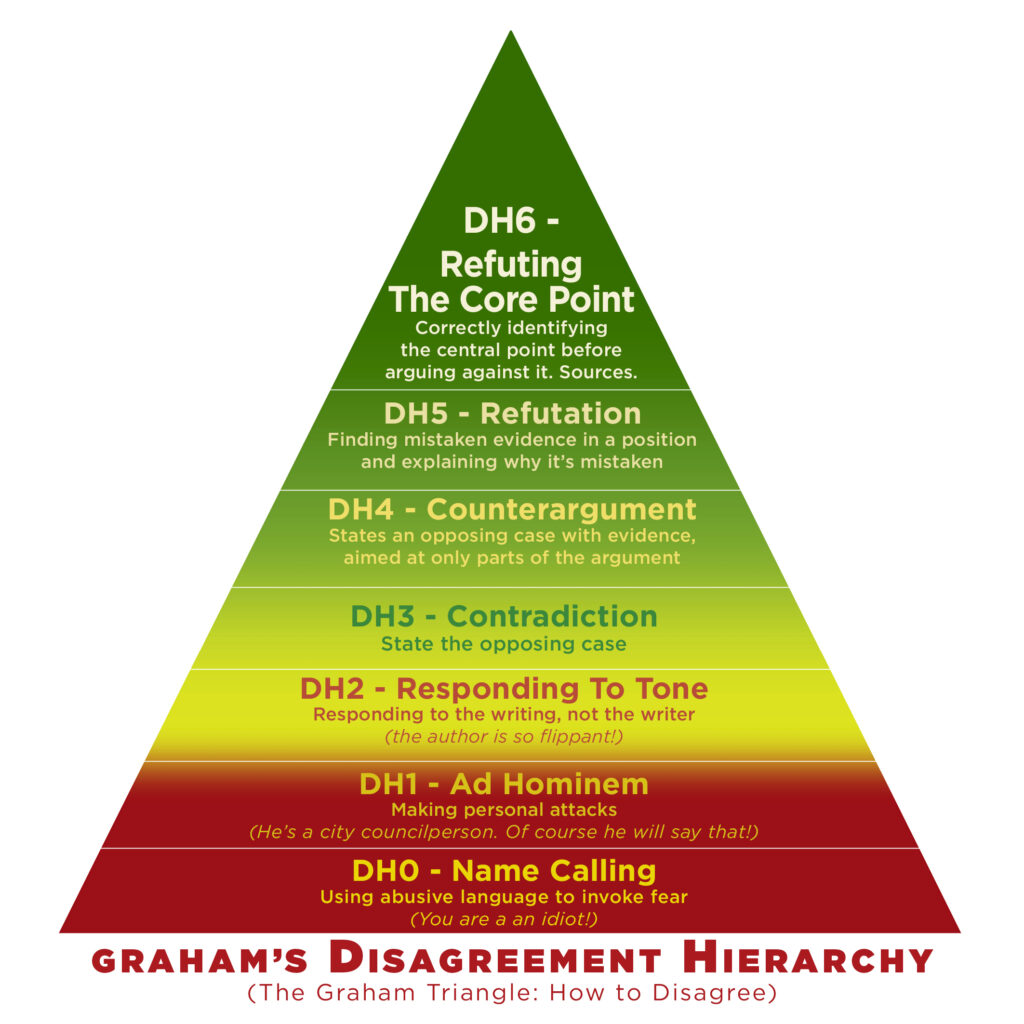Better Discussions, Better Community: Why “Newburgh Is America” Needs These Comment Rules
Blogs face a choice today: let comment sections continue to turn into rhetorical free-for-alls, or encourage real discussion.
For “Newburgh Is America,” this choice matters. This blog hopes to bring dynamic ideas to a city wrestling with serious challenges — housing costs, school funding, economic development, public safety, the ongoing trauma of urban renewal. These topics deserve thoughtful debate, not keystroke wars.
The solution comes from an unlikely source: Paul Graham, a computer programmer turned venture capitalist. Decades ago, Graham studied how people argue online and noticed what we now know well: inflammatory rhetoric rises to the top. He created a “Disagreement Hierarchy” (DH) — a framework designed to separate productive from destructive arguments.
Think of it as a pyramid with seven levels. At the bottom: name-calling and personal attacks. Towards the top, useful discussion.
Say someone writes about downtown development. A DH0 comment might sound like this: “This is just another stupid plan by dumb developers that wastes our tax dollars, and your mother is a kumquat!”

A DH5 or DH6 comment might look like this: “I’m concerned this development will raise property taxes for longtime residents without creating jobs that pay enough for local workers to afford the new apartments. Similar projects in Troy and Kingston had mixed results, see ref xxxx.”
Specific concerns. Real examples. Sources.
“Newburgh Is America” will moderate comments using Graham’s framework. Comments that fall into DH0, DH1 and DH2—that attack people, name-call or catch an attitude — won’t be shared. Comments that make actual arguments — even strongly worded ones — will be published.
What You Can Expect From These Changes
Better information: When people have to back up their claims with sources, you get more facts, fewer rumors.
More diverse voices: Louder voices tend to dominate. These rules level the playing field so thoughtful residents who don’t like online mud-slinging can participate.
Solutions, not just complaints: When people focus on main points instead of personal attacks, discussions shift from “whose fault is this?” to “how do we fix this?”
Implementation won’t be easy, but research shows that when people actively engage with discussions that sparkle with ideas, they also start to come together and shift from finding problems to finding solutions. For a community facing real challenges, that’s a superpower.
So how will we build something better? We will also rely on these three simple rules:
Three Simple Rules
Real names strongly encouraged. Anonymous comments are allowed, but real names get priority placement and more credibility.
Newburgh voices first. Verified residents (verified by showing an electric bill or other proof of residency) get a “Newburgh Resident” badge and priority placement. Outside voices are welcome but don’t drive the conversation.
Back it up. Making claims about budgets, crime stats, or housing data? Show sources. This isn’t Facebook — we prefer fact driven conversations.
Now: let’s have some fun…

